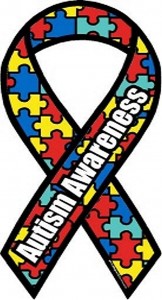 Emotions tend to run extremely high when talking about the autism spectrum disorders, and for good reason. Very little is concretely known about the cause of the disorder, and while there are modes of treatment that are empirically supported (such as ABA therapy), panic runs so high upon diagnosis, the long, hard slog of behavioral therapy is often forgone in favor of the miracle cure.
Emotions tend to run extremely high when talking about the autism spectrum disorders, and for good reason. Very little is concretely known about the cause of the disorder, and while there are modes of treatment that are empirically supported (such as ABA therapy), panic runs so high upon diagnosis, the long, hard slog of behavioral therapy is often forgone in favor of the miracle cure.
When I first began working in 2008, prevalence rates sat at 1:125; today they are closer to 1:91. For many parents, it feels like we’re in the middle of an unstoppable epidemic.
The field is tantamount to the Wild West– oversight is minimal, the types of licensure available are few (and the requirements and oversights as compared to, say, those for licensed professional counselors, are extremely lax), and evidence-based treatment is neglected in favor of fad ‘cures’ marketed to desperate parents.
Despicable individuals like Dr. Andrew Wakefield and Jenny McCarthy, along with militant anti-vaccination autism moms continue to propagate the myth that vaccines cause autism, and that things like an all-formula diet for five-year olds will ‘cure’ the disorder. Wakefield has managed to get people to believe autism is a disorder of the gut, and so tons of restrictive diets have popped up as miracle cures– the most popular being the gluten-free/casein-free diet, wherein children are strictly prohibited from ingesting any wheat, dairy, or anything tasty.
I’ve worked with other children who have to drink ‘special’ water, some who don’t eat at all (thanks to the medicine they’re on), some who have no bed but sleep in a hyperbaric chamber, and others who had bimonthly infusions of IVIG (intravenous immunoglobulin)– all of which was supposed to cure the children, but never did.
Let me get this out of the way, there is no cure for autism. Depending on the severity of the disorder, with good, early intervention children can go on to lead a relatively normal life; I can think of a handful of my past clients who worked hard enough to get to the point where, if you didn’t know it already, you would have no idea they were diagnosed with autism.
However, for every successful child I’ve worked with, I have seen five more undermined by their parents and bad advice– and this is a large part of why I’m ready to cash in my chips and leave the field for good.
When I first started, I loved my job more than anything in the world. While the work was challenging, nothing beat the thrill of being with a child as they finally said their first word, learned their first sign, or made overtures to another child.
I was (and still remain) an idealistic young woman who wanted nothing more out of life than to do a good job and make a difference– something which this position appeared to offer in spades. I worked for just over a year as a teacher and outreach therapist at a preschool for children with autism; the preschool was unique because it made a point of having children with autism and neurotypical children in the same classroom from as young as 18 months.
The idea was, the earlier you introduce the two groups to one another, the more normal they’re going to seem to each other once they reach the frightening world of public school– and, for all my issues with how the preschool is run, this is one facet I think is pure brilliance. Not only are you socializing the kiddos on the spectrum without them realizing it, you’re grooming Susie and Billy to treat kids who are different with respect and care from an early age.

At one point I found myself left in charge of 15 screaming five year olds, five of whom had autism, and another five of whom were borderline. On a day to day basis I would face down angry, frustrated children who had no way of communicating with me, and as such would resort to violence– the speed with which I could avoid a child lunging to bite me became a point of pride, and I could carry a kicking, screaming, raging five-year old across the playground and into the classroom without batting an eye.
However, without proper support in the workplace, it gets old very fast. One of the hallmarks of ASD is the child’s marked inability to self-regulate– that is, they become very overwrought very fast, and can take hours to calm down; I spent many a workday struggling to keep a neutral face while waiting for a tantruming child to calm down enough for me to force them to follow through on a demand.
This usually involved me slowly backing them into an area away from the door (so they couldn’t bolt, as they are wont to do), not making eye contact (more often than not the function of negative behaviors is attention-seeking), and keeping them from hurting themselves and from hurting me.
After I left the preschool, I spent two years working as an in-home therapist. By the time I finished my final contract, I was making five times what I was previously, and I had the freedom to adapt my client’s programs as I saw fit. I felt I was far more successful in this role, but I was eventually chased away by the parents.
I learned very early on to adjust my own expectations and desires for the child’s progress to account for the inevitable meddling and chaos brought on by their parents. While ABA one of the only empirically validated methods of treatment for children with autism (with studies showing the window for the best intervention results closes at age five), parents continue to grasp for anything that offers the promise of being a quick fix. I understand the appeal– while I sometimes have to remind myself I get to go home in order to get through the day, parents don’t have the luxury of a break and anything that might make life easier (for parent and child) is worth trying.
The various intervention programs then become a combination of genuine attempts at improving the quality of life for the child, and something created in order for mom and dad to have a break– not only that, the fad treatments are becoming more and more dangerous.
In fact, as I write this, a law firm is running a commercial soliciting people for a class-action lawsuit against the makers of Actos, which has been linked to bladder cancer. Actos is a diabetes drug commonly used off-label to help treat autism, and I have worked with at least one child prescribed the drug.
I also worked with one child who I felt had a lot of potential, but was overloaded by his parents– he had piano lessons, occupational therapy from three different therapists in three different places, speech therapy, gymnastics, special school, drama, and at least six hours a day of ABA therapy.
Combine this with a questionable regimen of prescription medications being used off-label, and you had an exhausted, drug-fogged child who had no way of going to his mother and saying “I hate this, it hurts me.”
I left my position with his family after we had a disagreement over their choice to continue with dangerous medical treatments (supported only by fringe groups such as Defeat Autism Now!)– and by disagreement I mean I was thrown under the bus when I brought my concerns to the treatment team leader, and one of the parents went so far as to leave me harassing phone messages and go to my university and request I be barred from graduating.
I have heard receiving an autism diagnosis be compared to the death of a child– and, to a certain extent, I can understand that. When your child is diagnosed with the disorder, you grieve the loss of all your hopes and dreams for them and have to replace your expectations with something different– depending on the severity, a parent’s biggest hope might be for their child to one day be able to utter a few words, live independently, or simply be fully potty-trained.
Still, the best thing a parent can do for their child is accept their diagnosis and love them for who they are– and not, as I see all too often, resent them for what they might have been.
In the end, I would love nothing more than to see parents be offered treatment alongside their children. Too often they are left to navigate the terrifying morass of autism on their own, to the detriment of the entire family.